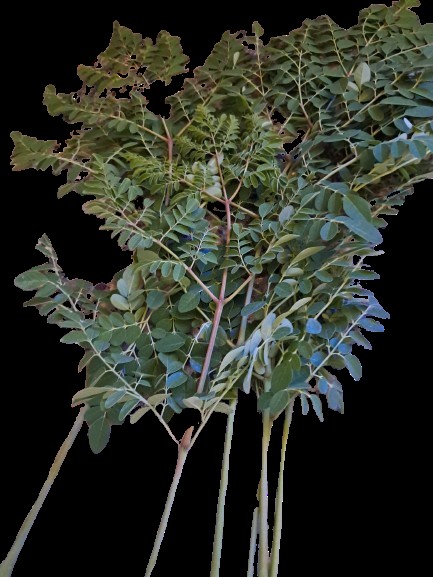
Health Benefits of Moringa oleifera
By Lakshmi Menon, Bangalore
Health Benefits of Moringa - There are several health Health Benefits of Moringa oleifera and has been recognized as highly beneficial for improving wellness.
Moringa contains Vitamins A, B1, B2, B3 and Vitamin C. Besides, it also contains calcium, magnesium, and phospherous. Hence it is rich in vitamins, minerals and aminoacids.
Because of its wide range of nutritional and bioactive compounds, it has been used in Ayurvedic and Unani medicines, for centuries.

Moringa Nutrition Facts
Supposedly, moringa contains:
10 times the vitamin A of carrots
12 times the vitamin C of oranges
17 times more calcium than milk
15 times more potassium than bananas
25 times more iron than spinach
9 times more protein than yogurt.
Vitamin C 8.6mg
Potassium 471mg
Magnesium 35.1mg
Manganese 0.119mg
Calcium 99.1mg
Iron 1.3mg
Phosphorous 70.8
Thiamine (B1) 0.103 mg
Riboflavin (B2) 0.112 mg
Vitamin B6 0.129 mg
Zinc 0.85 mg
Health Benefits of Moringa
The pharmacological properties of Moringa include, anti-diabetic, anti-inflammatory, anticarcinogenic, antioxidant, cardioprotective, antimicrobial and hepatoprotective. Some of the possible health benefits of Moringa oleifera are -
1, Moringa fights inflammation.
Since Moringa contains anti-inflammatory properties it fights against inflammation. Inflammation is the root cause of many diseases like cancer, arthritis, rheumatoid arthritis, and many autoimmune diseases.
2. Lowers Blood sugar levels in diabetes patients.
The anti-oxidative properties in Moringa protect against the damaging effects of free radicals present in the environment. The damage caused by free radicals is responsible for many chronic diseases like type 2 diabetes, heart problems, and Alzheimer’s.
As per Ayurveda, consuming moringa leaves water on an empty stomach can work wonders in controlling blood sugar levels. This primarily happens due to the compounds boosting insulin sensitivity - moringa water holds great significance for diabetic individuals and those on the borderline of this condition.
3. Lowers cholesterol levels.
Moringa is extremely low in fats and contains no harmful cholesterol. Animal studies have found that it can lower serum cholesterol and also have a Hypolipidemic effect.
4. Protects liver.
Moringa leaves have a high concentration of polyphenols that protect against oxidative damage to the liver and may even reduce it. They increase the protein levels in the liver.
5. Improves bowel health.
Moringa powder is rich in fibre and hence supports digestive health by promoting regular bowel movements and a healthy gut environment. It can help alleviate digestive issues such as constipation and bloating.
6. Improves hair and skin health.
Its antioxidant properties of Moringa contribute to maintaining youthful skin and promoting hair growth.
7. It is good for nervous system.
The antioxidant activity of moringa may protect against disorders that affect the nervous system.
8. It helps in detoxification.
Arsenic is a chemical element and long-term exposure to arsenic from drinking water and food can cause cancer and other life-threatening diseases. Moringa may be helpful in such cases.
9. Improves lactation.
Because of the rich source of protein, important vitamins, and essential nutrients, consuming moringa leaves is good for the health of the mother and the baby.
10. Improves eye health.
Moringa contains the antioxidant beta carotene, which is essential for maintaining eye health and preventing eye diseases.
11. Treats mood disorders.
A study conducted in 2012, Moringa was shown to improve menopausal symptoms..
12. Prevents rheumatoid arthritis
Moringa extract has anti-inflammatory properties that might help prevent rheumatoid arthritis, according to the authors of a study.
13. Prevents cancer
In a study conducted in 2015, it showed that Moringa leaf and root extracts act as anti-cancer agents against breast and colorectal cancers and can further be used to develop new drugs for treatment. The study in 2017 showed that Moringa oleifera nanocomposites may have potential for use as a natural source of anti-cancer compounds.
Risks for using Moringa oleifera
Though it is generally safe to use moringa it can be dangerous for pregnant women and it may create miscarriage. Other people who are under some medication should consult their doctor before the use of moringa, to avoid any medical complications.
How to consume Moringa
All the parts of Moringa oleifera are useful. Usually the leaves, fruits and seeds are used for day to day needs.
Leaves -
Moringa leaves can be used for cooking various dishes.
They can also be used as Powder.
For this purpose, the leaves should be washed and dried under the sunlight, but not direct sunlight. The leave will be ready for powdering after 2-3 days, and can be powdered in the mixie. This powder can be used in various ways - moringa tea, used in smoothies, as juice, etc. A few drops of lemon juice can be added to enhance the flavour. The powder can also be used in making chapathies. For 1 cup of wheat flour, 1/2 tsp of moringa powder can be added and mixed while making a dough.
For the beauty of the face, moringa leaf paste with lemon juice can be as a face pack.
Fruits
The fruits of this plant can be used in various dishes.
Seed oil
Oil extract from the seeds is used on the skin for bruises.
Capsules
Moringa capsules are also available online.
References:
https://www.ncbi.nlm.nih.gov/pmc/articles/PMC7915875/
https://nutritionfacts.org/questions/the-health-benefits-of-moringa/
https://www.walshmedicalmedia.com/open-access/nutritional-values-of-moringa-oleifera-total-protein-amino-acid-vitaminsminerals-carbohydrates-total-fat-and-crude-fiber-under-the-1948-5948-1000396.pdf
https://www.easyayurveda.com/2012/12/06/moringa-benefits-medicinal-usage-complete-ayurveda-details/
https://isha.sadhguru.org/en/blog/article/moringa-benefits-nutrition-side-effects
https://www.ncbi.nlm.nih.gov/pmc/articles/PMC4545797/
https://www.ncbi.nlm.nih.gov/pmc/articles/PMC5697473
https://www.ncbi.nlm.nih.gov/pmc/articles/PMC9298099/
https://link.springer.com/article/10.1007/s13197-012-0859-9
https://pharmeasy.in/blog/16-health-benefits-of-moringa-leaves/
https://www.frontiersin.org/journals/pharmacology/articles/10.3389/fphar.2021.724439/
https://pubmed.ncbi.nlm.nih.gov/12495589/






